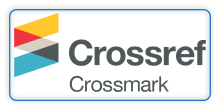THE INFLUENCE OF DIFFERENT SURFACTANTS ON THE RHEOLOGICAL BEHAVIOR OF GUM ARABIC.
DOI:
https://doi.org/10.29121/ijoest.v6.i1.2022.708Keywords:
Gum Arabic, Sodium Dodecyl Sulphate (Sds), Cetyl Trimethyl Ammonium Bromide (Ctab), Rheology, Apparent Viscosity, Shear ThinningAbstract
This research aimed to assess the effects of two surfactants, Sodium Dodecyl Sulfate (SDS) and Cetyl Trimethyl Ammonium Bromide (CTAB), on the rheological properties of aqueous solutions containing the natural polymer, Gum Arabic. Utilizing an Anton Paar MCR 102 series rheometer, substantial changes in viscosity, flow behavior, and shear thinning characteristics of the solutions were observed. These changes were implemented through systematic modifications of the quantities of Gum Arabic. This study's findings offer significant insights into the interactions between surfactants and natural polymers. The findings may be relevant in industries that employ polymer-surfactant combinations as thickening or thinning agents.
Downloads
References
Abel, S. E. R., Yusof, Y. A., Chin, N. L., Chang, L. S., Ghazali, H. M., and Manaf, Y. N. A. (2020). Characterisation of physicochemical properties of Gum arabic powder at various particle sizes. Food Research, 4, 107. https://doi.org/10.26656/fr.2017.4(s1).s32
Akbari, S., Mahmood, S. M., Tan, I. M., Bharadwaj, A. M., & Hematpour, H. (2017). Experimental investigation of the effect of different process variables on the viscosity of sulfonated polyacrylamide copolymers. Journal of Petroleum Exploration and Production Technology, 7, 87-101. http://dx.doi.org/10.1007/s13202-016-0244-8
Atgié, M., Chennevière, A., Masbernat, O., and Roger, K. (2019). Emulsions Stabilized by Gum Arabic: How Diversity and Interfacial Networking Lead to Metastability. Langmuir, 35(45), 14553.
Atgié, M., Masbernat, O., and Roger, K. (2018). Emulsions Stabilized by Gum Arabic: Composition and Packing within Interfacial Films. Langmuir, 35(4), 962. https://doi.org/10.1021/acs.langmuir.8b02715
Babu, K., Maurya, N. K., Mandal, A., and Saxena, V. K. (2015). Synthesis and characterization of sodium methyl ester sulfonate for chemically-enhanced oil recovery. Brazilian Journal of Chemical Engineering, 32, 795-803. https://doi.org/10.1590/0104-6632.20150323s00003642
Barnes, H. A. (1997). Thixotropy – a review. Journal of non-Newtonian fluid mechanics, 70 (1-2), 1-33. https://doi.org/10.1016/S0377-0257(97)00004-9
Hansson, P., & Lindman, B. (1996) Surfactant-polymer interactions. Current Opinion in Colloid & Interface Science, 1(5), 604. https://doi.org/10.1016/s1359-0294(96)80098-7
Hasan, A. M., and Abdel-Raouf, M. E. (2018). Applications of guar Gum and its derivatives in petroleum industry: A review. Egyptian journal of petroleum, 27(4), 1043-1050. https://doi.org/10.1016/j.ejpe.2018.03.005
Kralova, I., and Sjöblom, J. (2009). Surfactants Used in Food Industry: A Review [Review of Surfactants Used in Food Industry: A Review]. Journal of Dispersion Science and Technology, 30(9), 1363. Taylor & Francis. https://doi.org/10.1080/01932690902735561
Kwak, J. C. T. (2018). Polymer-Surfactant Systems. 1st Ed. In CRC Press. https://doi.org/10.1201/9781003064756
Milanović, M., Ćirin, D., and Krstonošić, V. (2021). The interactions in ternary system made of xanthan Gum, Carbopol 940 and anionic/nonionic surfactant. Journal of Molecular Liquids, 344, 117696. https://doi.org/10.1016/j.molliq.2021.117696
Mohsenipour,A.A., & Pal, R. (2013). Synergistic effects of anionic surfactant and nonionic polymer additives on drag reduction. Chemical Engineering Communications, 200 (7), 935-958. https://doi.org/10.1080/00986445.2012.731661
Mudgil, D., Barak, S., & Khatkar, B. S. (2014). Guar gum: processing, properties and food applications- a review. Journal of food science and technology, 51, 409-418. https://doi.org/10.1007/s13197-011-0522-x
Nesterenko, A., Drelich, A., Lu, H., Clausse, D., and Pezron, I. (2014). Influence of a mixed particle/surfactant emulsifier system on water-in-oil emulsion stability. Colloids and Surfaces A: Physicochemical and Engineering Aspects, 457, 49-57. https://doi.org/10.1016/j.colsurfa.2014.05.044
Oyatobo, A., Muoghalu, A., Ikeokwu, C., & Ekpotu, W. (2021). An Experimental Research on Enhanced Oil Recovery Using Local Polymers. In SPE Nigeria Annual International Conference and Exhibition (p. D031S015R003). SPE. https://doi.org/10.2118/207130-MS
Patel, S., and Goyal, A. (2014). Applications of Natural Polymer Gum Arabic: A Review [Review of Applications of Natural Polymer Gum Arabic: A Review]. International Journal of Food Properties,18(5), 986. Marcel Dekker. https://doi.org/10.1080/10942912.2013.809541
Pisarčik, M., and Bakoš, D. (1994). Rheological study of polymer‐surfactant interactions in cellulose derivatives and gelatin aqueous solution. Acta polymerica., 45(2), 93-96. https://doi.org/10.1002/actp.1994.010450206
SY, A., and WF, N. (2017). Enhancement of Gum Solubility by Single Process of Humidification and Drying (Granulation). Pharmaceutica Analytica Acta, 28(1). https://doi.org/10.4172/2153-2435.1000534
Yang, J., and Pal, R. (2020). Investigation of Surfactant-Polymer Interactions Using Rheology and SurfaceTension Measurements. Polymers, 12(10), 2302. https://doi.org/10.3390/polym12102302
Ye, W., Hou, B., Cao, X., Zhang, J., Song, X., Ding, M., and Chen, W. (2017). Interaction between polymer and anionic/nonionic surfactants and its mechanism of enhanced oil recovery. Journal of Dispersion Science and Technology, 39(8), 1178. https://doi.org/10.1080/01932691.2017.1386112
Downloads
Published
How to Cite
Issue
Section
License
Copyright (c) 2022 Nirav Bhavsar, Vivek Parikh, Yakshita Kiri

This work is licensed under a Creative Commons Attribution 4.0 International License.






























